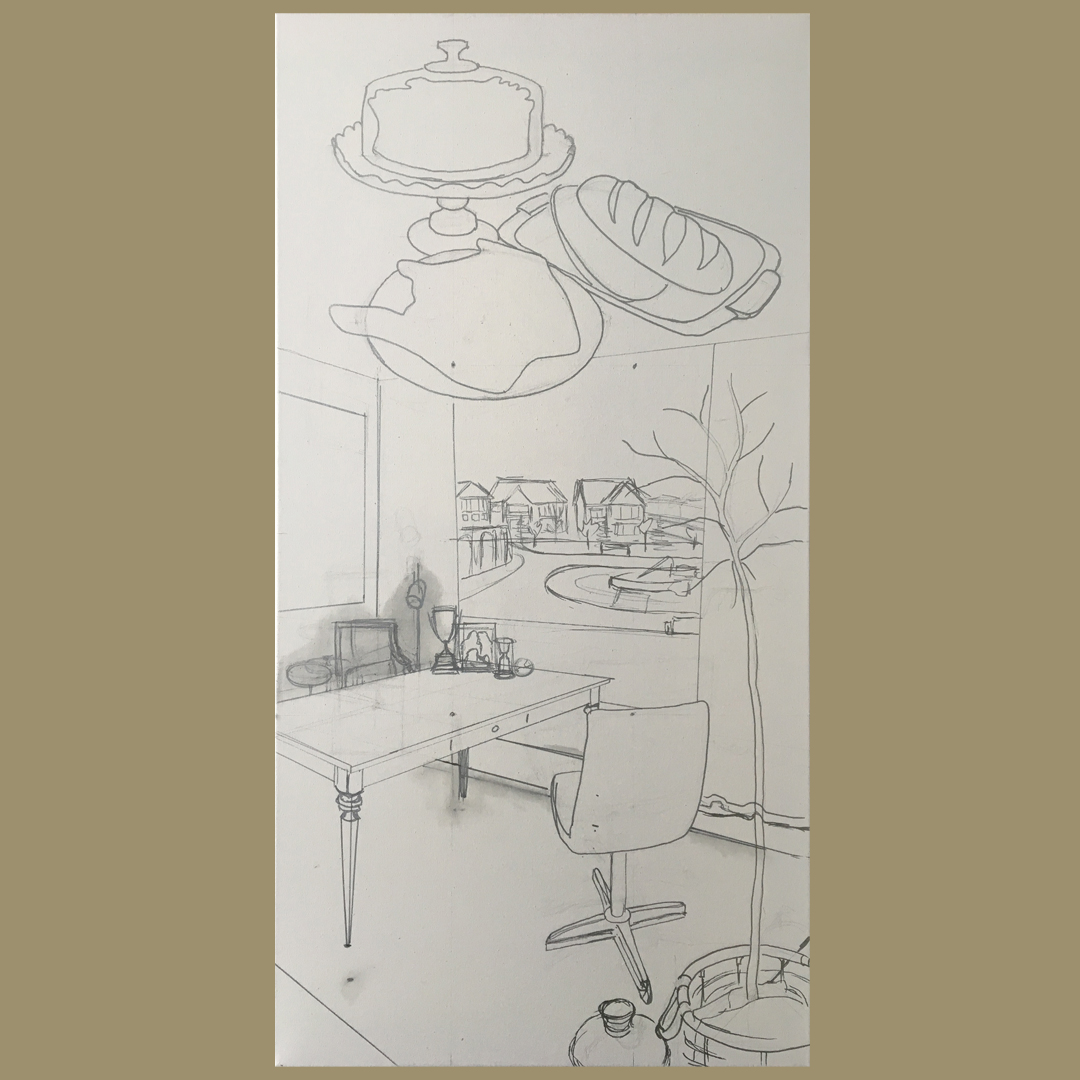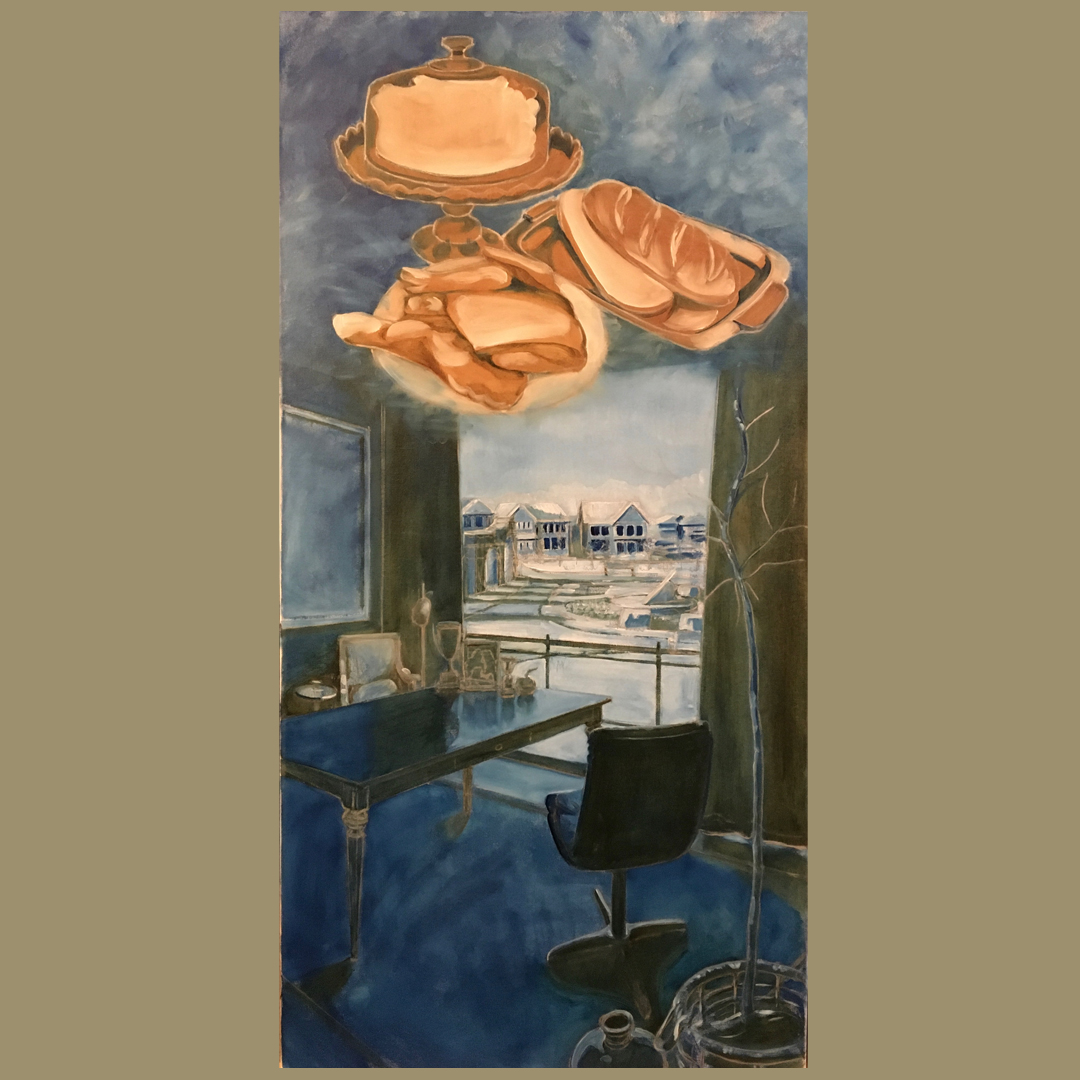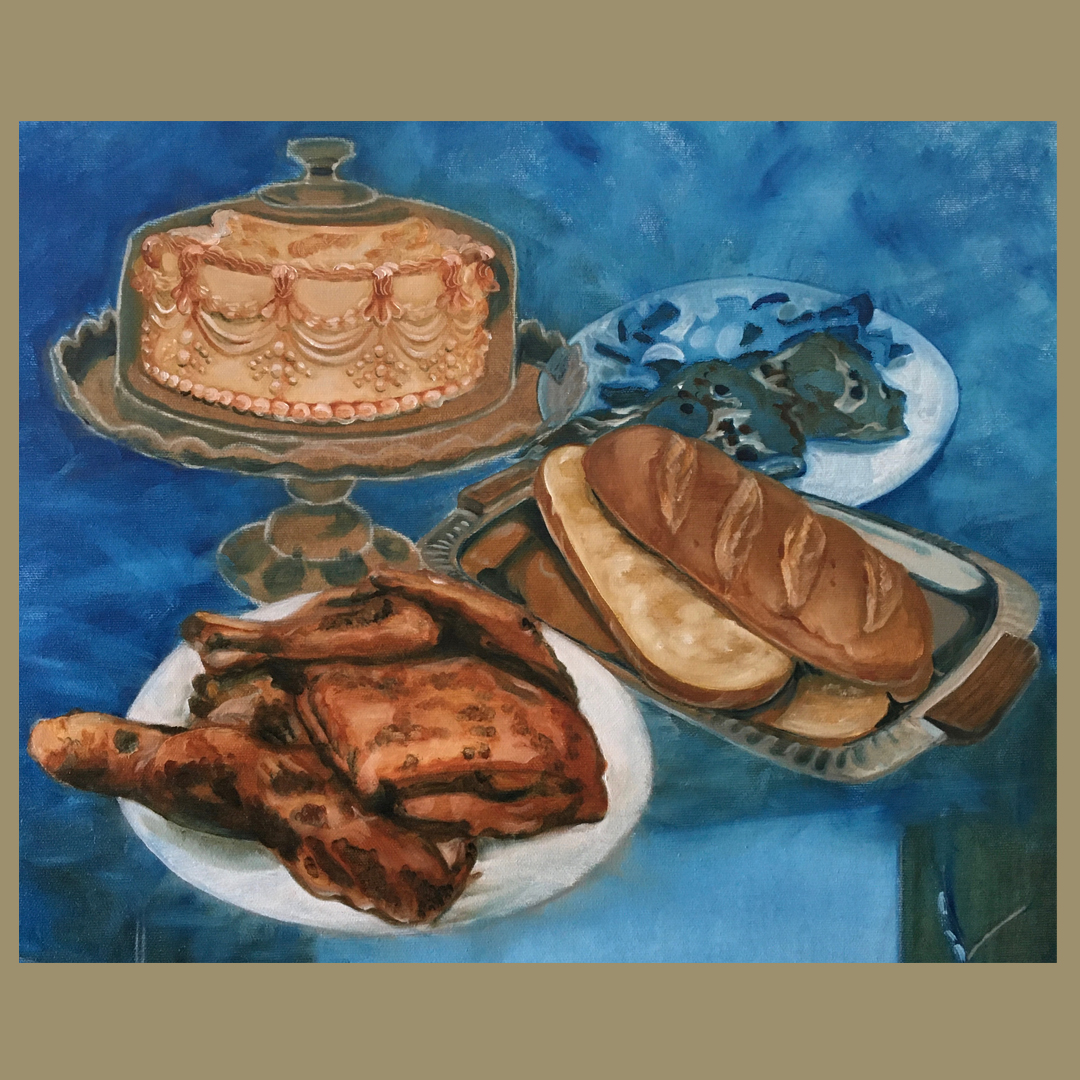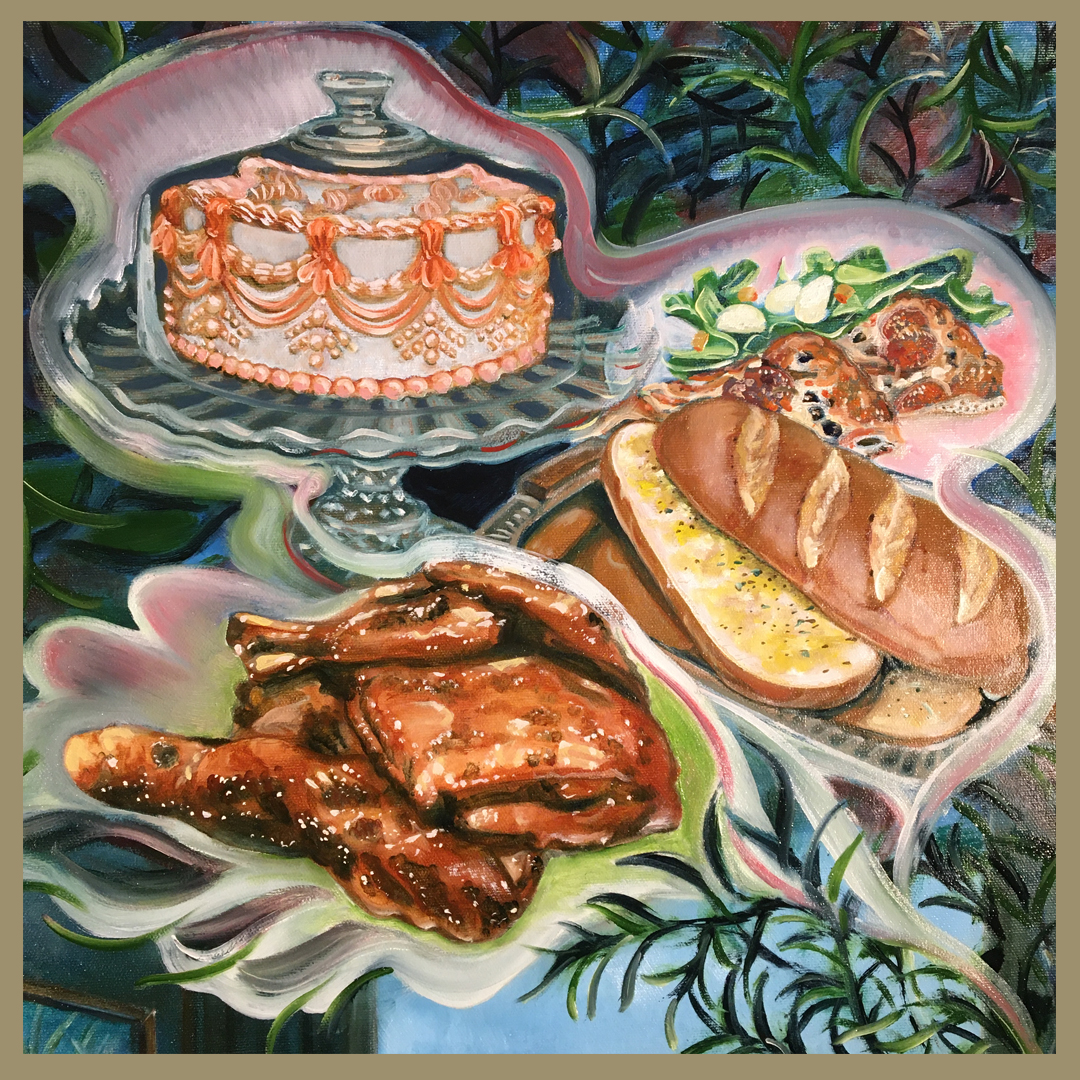
Welcome to the 8th instalment of a series of blog posts going more in-depth into the thoughts and ideas behind each of the paintings in the Earthly Delights series. The series is based on my experience navigating health and diet culture as a long term participant. You can read the full background by following the link to that blog post below:
Project Background: You can read more about the project background here.
Some people appear to have everything, but never seem happy. It’s like they feel that, even with all the blessings in their cup, it’s not quite as full as it should be, and possibly someone else has been sipping from it. Maybe they feel that they have worked hard but the exchange hasn’t been fair, they haven’t got a ‘just dessert’ for all their hard work.
You can never be too rich or too thin, as the old saying goes. For some people life is a series of competitive challenges to demonstrate their worth through the accumulation of accolades and status: The perfect family, a beautiful home in a desirable area, a lucrative and successful career, public respect and recognition, the admiration of society, a thin fit attractive body. For all that work, they expect to be rewarded, they expect to be happy.
I have often wondered why some people of my general knowledge, and even my acquaintance, seem to have it all and yet are not particularly happy people. Why is it that they fixate on someone else getting something, some reward they think they should have had, or at the very least the other did not earn as they did. Why don’t they feel happy, content, satiated?
Then I had an interaction where my own realization of the psychological effects of long term caloric restriction on my thinking led to a flash of insight into that paradox:
I was having a conversation with one such achievement oriented being, one whom I had always known to be very trim and athletic. We happened across the topic of cooking, and I recognized in that person the same obsessive interest in food that I had developed as a result of my years of caloric restriction.
I realized then the unacknowledged efforts this person had to go through to maintain their trim figure. They well and truly earned their body. However, to maintain it meant it was likely they were always living on the edge of hunger.
In the Minnesota Starvation Experiment, conducted on conscientious objectors during the late years of WW2 by Ancel Keys and documented in The Biology of Human Starvation (1950, Keys et al.), participants were placed on a diet that supplied just half of their caloric requirements for a period of 6 months. (FYI, most weight loss diets today recommend a similar ratio for caloric restriction.) The results of that experiment still supply much of our scientific knowledge about the effects of starvation on the human mind and body. Documented psychological effects of starvation on the participants included a fixation on images of food, cooking and eating, as well as an urge to collect recipes, cook books and even cooking implements. The effect was so powerful that during the course of the experiment several participants even changed their aspirations to pursue culinary occupations. In addition to food fixation, experiment participants were increasingly irritable, sensitive to any perceived injustice related to food portions, food waste or delays in food service. They were often judgemental of the physiques of others who appeared more well fed than they.
Back to my acquaintance then, I understood that as a result of this constant low level hunger it was possible they were always just a little grumpy, but didn’t necessarily know why. After all, they had everything one could possibly want, other than a regularly full belly. Instead, the hunger infiltrated their perspective on life; some one else was always getting the serving of success they should have had. They always felt just a little short changed. And honestly, I’d have to agree. Diet culture, the culture of thin and its promised rewards, had short changed them.
But this painting isn’t really about them, it’s a meditation on my dilemma with diet culture. Would I be so in love with my appearance – the socially prescribed attributes of a successful life of which physical appearance is a part – that I would sacrifice my mental health, my sense of gratitude and my happiness to that appearance?














